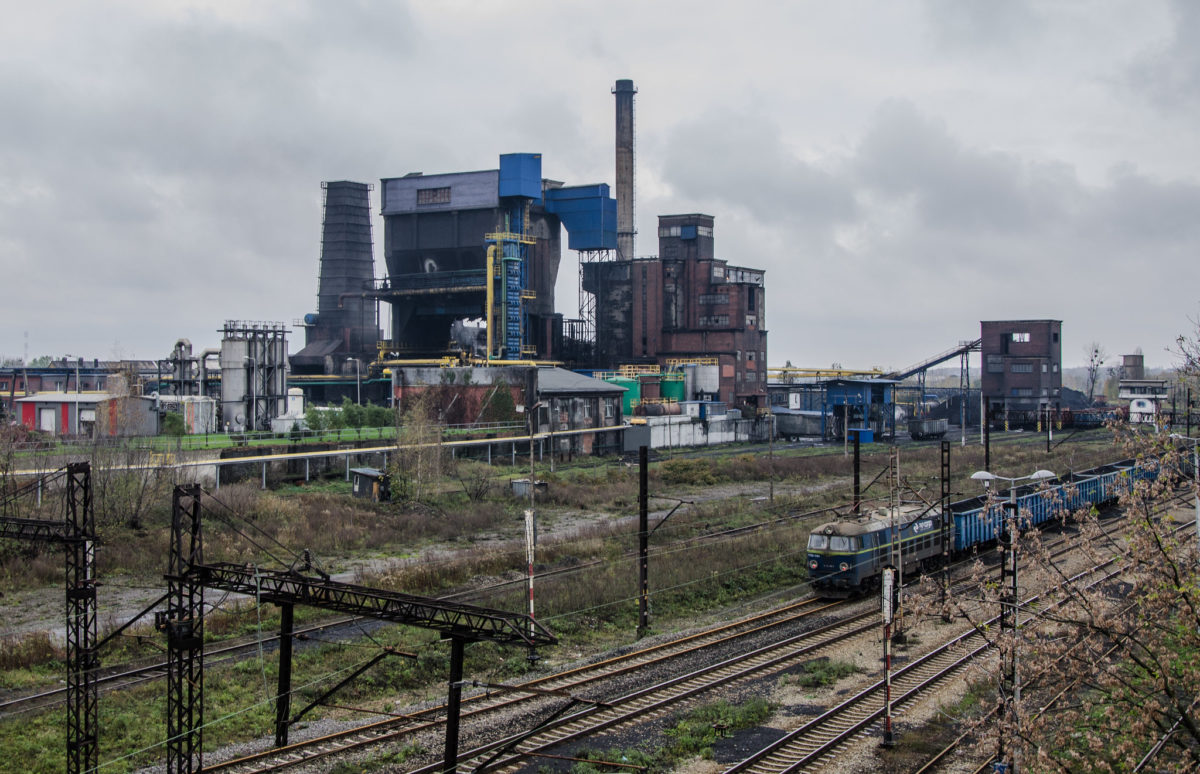What US-EU deals on steel and technology tell us about Brexit and the changing security structures of monopoly capitalism
Luke Cooper takes a look at two recent US-EU agreements and Britain’s new isolationism.

International Trade Secretary, Anne-Marie Trevelyan, was in Washington last week as the UK stepped up its efforts to persuade the US to lift its steel and metal tariffs. These had been imposed on the EU by Donald Trump in 2018, in one of his many trade disputes with rivals powers and blocs.
The EU and US reached agreement on removing these tariffs at the end of October. But much to the government’s chagrin, the UK was not included in the deal. So, tariffs imposed on UK steel as part of our EU membership, now, ironically, still apply to the UK but not the European bloc that we left.
In a sign of the winds of change, the US-EU agreement won the backing of the American left. The progressive magazine, American Prospect praised Joe Biden’s radical trade pragmatism, ‘After decades of globalist self-delusion under both parties, and four years of strategically incoherent nationalism under Trump, the U.S. now embraces effective managed trade.’ It was also this ‘strategically incoherent nationalism’, which made Trump’s White House a natural Brexit-ally. His deep ideological opposition to the EU as a project, and view of the bloc as a rival, not a partner, made him supportive of the idea of rapidly signing a trade deal with post-Brexit Britain.
There are no such sympathies with Brexit in the current US administration. While, in all likelihood, the UK will get an equivalent US steel deal to the EU’s eventually, agreeing one was evidently not a priority for team Biden.
But the US-EU deal on technology is key to the global picture
Although less widely reported, the EU’s agreement with the Biden administration on technology could prove to be much more important over time. At the end of September, the two sides announced the creation of an ‘EU-US Trade and Technology Council’. It establishes ten working groups, including on technology regulation, supply chains, and export controls.
Like the steel agreement, the new arrangements are a sign of the changing global economic consensus. Whereas once these declarations would have signalled support for on-going attempts at global trade liberalisation, removing regulatory barriers to capital moving across borders, now a different tone prevails, emphasising how technological change has to be managed in a way that protects the climate, employment standards and human rights.
Although China is not mentioned by name in any of the documentation surrounding the announcement, 8 of the 10 working groups established are largely concerned with countering Chinese competition – and the pejorative label, ‘non-market-economy’, is used frequently to not-so-implicitly refer to China’s state-dominated society.
The UK’s exclusion from the US-EU Technology Council is a real sign of how Brexit has radically reduced its influence in European and Western politics. As the UK government has followed the US lead on changing its geopolitical relationship with China towards a more confrontational one, it is hard to see how they could plausibly dissent from bilateral US-EU agreements on technology and supply chains aimed at ‘containing’ China’s rise.
Technology sharing versus securitised monopoly capitalism
Seen in tandem with other changes going on in Western economies, these new bodies raise some interesting questions for progressives on the left. Both the US and EU are now committed to pursuing re-industrialisation, prioritising the protection of supply chains, higher standards in labour and environmental rules, over the ‘old’ globalisation model based on open markets competing to drive down the price of goods and services. If the rhetoric is backed up with big state investment and better regulation (both ‘ifs’, on either side of the Atlantic), this would benefit workers and consumers in the Western world, raising living standards and addressing longstanding failings.
Nonetheless, as we’ve seen so clearly in the COVID-19 pandemic, there is also the danger of a form of Western-protectionism emerging through these policy changes, as states in the Atlantic alliance mobilise to support and protect their commercial interests. The US-EU technology deal could point in this direction as they seek to tailor international agreements on regulation narrowly to their own perceived geopolitical security and economic interests.
COVID-19 vaccines are a harbinger of how this could lead to a form of state-backed monopoly capitalism, as investment risks are socialised by the state but profits privatised in the hands of a select few favoured corporations. The vaccine ‘moonshot’ required massive state investment, but with patent law still unreformed, corporations have pocketed the profits – despite the vital role played by the public purse. And this, in turn, has led to artificial scarcity in the global supply and distribution of vaccines – as the state-market nexus of interests controlling the technology and core manufacturing capacity, refuses to share the knowledge and expertise with the rest of the world.
So, the case study of vaccines provides a snapshot on how economic and geopolitical interests are blurring as markets (and big corporations) become more dependent on support from states and big trading blocs.
The biosecurity implications of vaccines also raise questions of ‘dual use’: the potential for civilian technology to be applied to military purposes. Notably, this is a key area of concern in the US-EU Technology Council, which discusses how export controls can be used to block military use. But, problematically, with modern conflict taking unconventional, ‘hybrid’ forms, a huge range of technologies can, potentially, be harnessed for ‘military purposes’. As implied in the public debate on the relatively benign question of 5G technology, there will be growing pressure to designate a very wide range of items as dual use on national security grounds and refuse to share key knowhow.
So, current trends suggest a movement is underway towards a global governance structure comprised of competing blocs, each with their own security infrastructures and monopoly capitalisms.
Navigating these economic and geopolitics contexts will not be easy. But the outline of an alternative framework must reject monopolisation and prioritise building new ‘information commons’ for the sharing of technology – like the World Health Organisation’s COVID-19 Technology Access Pool. This could be combined with new global agreements that prohibit military use, backed up by international organisations with robust enforcement powers.
This approach is already supported by countless countries in the global south. In contrast, the UK government finds itself in a state of entrenched national isolation, with Brexit diminishing its status in the Atlantic alliance and without a credible policy agenda. The UK is locked out of these EU-US agreements that it once would have been integral to. Meanwhile, despite Brexit introducing historically high barriers to trade with its largest market, the UK is still nominally committed to trade and economic liberalisation when this idea is in global retreat.
***
Luke Cooper is an associate researcher at LSE IDEAS, the in-house foreign policy think tank of the London School of Economics. His book, Authoritarian Contagion; the Global Threat to Democracy, was published earlier this year by Bristol University Press.
December 14, 2021
Brexit Spotlight is run by Another Europe Is Possible. You can support this work by joining us today. The website is a resource to encourage debate and discussion. Published opinions do not necessarily represent those of Another Europe.





